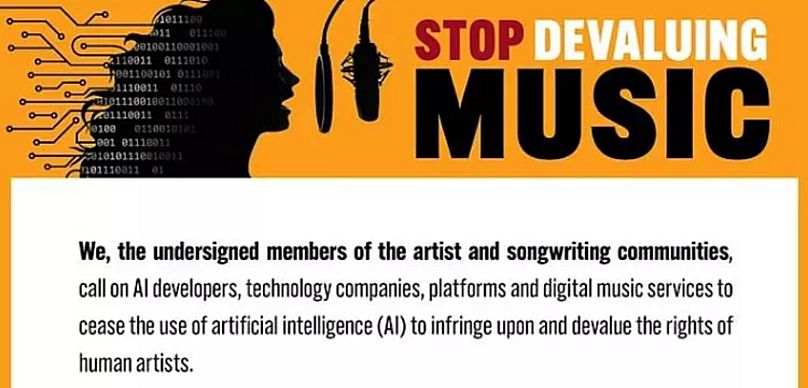
Following controversy over a quiet update to the terms of use that seemed to permit the content uploaded to the streamer being used to train AI, SoundCloud has updated its AI policy.
Futurism had previously reported that SoundCloud “quietly” updated its terms and conditions in February 2024 in which users were “explicitly agreeing” by using the platform to have their content used to train AI.
The policy read: “You explicitly agree that your Content may be used to inform, train, develop, or serve as input to artificial intelligence technologies as part of and for providing the services.”
Users were understandably upset and now, following backlash, SoundCloud CEO Eliah Seton has responded regarding the platform’s stance on AI and “how content may interact with AI technologies within SoundCloud’s own platform”.
The letter, titled “A Letter from our CEO: Clarifying our Terms of Use”, states: “SoundCloud has never used artist content to train AI models. Not for music creation. Not for large language models. Not for anything that tries to mimic or replace your work.”
It also states: “We don’t build generative AI tools, and we don’t allow third parties to scrape or use artist content from SoundCloud to train them either.”
“Our position is simple: AI should support artists, not replace them.”
Seton went on to explain the updates to the Terms Of Use last February were meant to clarify how “we may use AI internally” to improve SoundCloud for its users, including “powering smarter recommendations, search, playlisting, content tagging, and tools that help prevent fraud”.
Now, SoundCloud has changed its Terms Of Use, and it will only use AI-training on content uploaded to the platform with users’ consent.
The new policy reads: “We will not use Your Content to train generative AI models that aim to replicate or synthesize your voice, music, or likeness without your explicit consent, which must be affirmatively provided through an opt-in mechanism.”

Today, the Data (Use and Access) Bill returns to the UK House of Lords for consideration, in order to address how the government’s desire to foster a British AI industry could allow technology companies to circumvent copyright laws and use creative content to train their models – all without the permission of the creators.
Chi Onwurah, the chair of the cross-party committee, has previously urged the government to bring forward the AI safety bill.
Onwurah told the Guardian: “It’s absolutely critical that the government shows it is on the side of people when it comes to technology, particularly when it comes to the tech platforms and the impact technology is going to have in their lives.”
This also comes at a time when artists have been speaking out against companies exploiting copyrighted works and warning against “predatory” use of AI in music.
Earlier this year, more than 200 artists featured on an open letter submitted by the Artist Rights Alliance non-profit, calling on artificial intelligence tech companies, developers, platforms, digital music services and platforms to stop using AI "to infringe upon and devalue the rights of human artists.”
Amongst those names were Stevie Wonder, Robert Smith, Billie Eilish, Nicki Minaj, R.E.M., Peter Frampton, Jon Batiste, Katy Perry, Sheryl Crow, Smokey Robinson, and the estates of Bob Marley and Frank Sinatra.
The letter, while acknowledging the creative possibilities of new AI technology, addressed some of its threats to human artistry. Those include using preexisting work to train AI models - without permissions - in an attempt to replace artists and therefore “substantially dilute the royalty pools that are paid out to artists.”
The letter stated: “Make no mistake: we believe that, when used responsibly, AI has enormous potential to advance human creativity and in a manner that enables the development and growth of new and exciting experiences for music fans everywhere. Unfortunately, some platforms and developers are employing AI to sabotage creativity and undermine artists, songwriters, musicians and rightsholders. When used irresponsibly, AI poses enormous threats to our ability to protect our privacy, our identities, our music and our livelihoods.”







